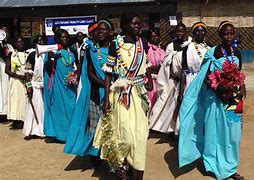
One of the overriding complaints from camp residents in Malakal Protection of Civilians (POC) site in South Sudan has been inaction over sexual abuse cases and the absence of justice.
A woman who said an MSF worker tried to rape her daughter said community leaders took the side of the aid worker because he had status and power. Another case mentioned by camp residents was that of a camp teacher who impregnated at least one student.
War Child Canada, which oversaw some school programmes in the camp, confirmed that a volunteer teacher had impregnated an 18-year-old student in 2019. It said it had dismissed the project director for not reporting it and also dismissed the teacher after an investigation. War Child Canada’s Country Director Emmanuel Gumbiri said it only learned of the incident in 2020, after UNICEF reported it.
The girl’s parents also took the case to a community tribunal, and in the end the parents agreed for the teacher to marry the girl, while the teacher was ordered to give the family a number of cows as dowry, Gumbiri said in a August 17, 2022 email.
“Failing to punish offenders adequately undermines confidence in the system and makes people less willing to report violations they’ve experienced or witnessed,” said Nina Masore, who works for Equality Now, which campaigns for the end of sexual and gender-based violence.
Although aid officials have often fired workers if sexual abuse cases are found to be substantiated, referring cases like rape for criminal prosecution is more difficult.
“It remains unclear to (the) majority of the population where and how complaints … should be made and what the results of making such complaints might be.”
Since 2016, the UN has referred only two cases to South Sudan’s government, according to a UN database. South Sudanese officials did not respond to multiple attempts to be reached for comment.
In the meantime, Nyanti, deputy head of the UN peacekeeping mission, has put UN agencies and aid groups in Malakal on notice.
“I request a review of your internal arrangements to further enhance sensitisation of aid personnel on these international commitments and raise awareness on PSEA (prevention of sexual exploitation and abuse), policies, standards, and code of conduct on PSEA,” she wrote in a March 2022 letter to these organisations, shared with reporters by an aid worker.
Aid groups in Malakal told reporters they would investigate cases that had been uncovered, and said they are constantly working to bolster measures to prevent sexual exploitation and abuse.
More broadly, many aid organisations have also vowed to increase the number of women aid workers they employ, although nearly a dozen groups working in South Sudan did not disclose the current numbers when contacted by reporters via email in August.
While the fate of the Malakal camp is unclear – there has been more talk of potentially turning over control to South Sudan’s government – aid groups say they are committed to providing a “survivor-centred approach”.
But for many women who fled South Sudan’s war, justice and accountability are even harder to come by when the means of survival are often provided by aid agencies and NGOs, according to Atem, the South Sudanese feminist activist.
“It’s not a matter of having beautifully written zero tolerance policies,” she said. “They must serve and protect victims and survivors without any compromises.”











